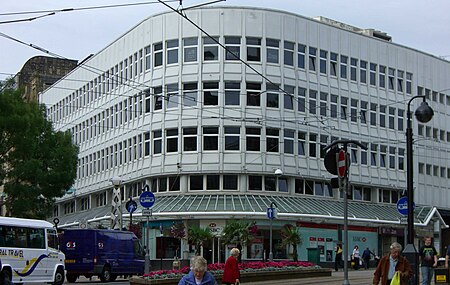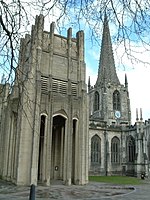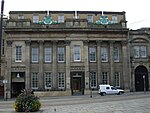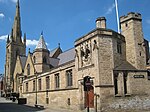Coles Corner

Coles Corner is the name given to the corner of Fargate and Church Street in Sheffield, England in sight of the cathedral. It was the site of the old Cole Brothers department store until it moved to Barker's Pool in 1963. The modern building was built on the site of Coles Corner and has been occupied by Midland Bank and various retailers over the years, including HSBC, Starbucks Coffee, Vodafone and The Carphone Warehouse and, until recently, Pret. The top floor has also been occupied by an Armed Forces Careers Office (AFCO), staffed by personnel from all three services of the British Armed Forces. The corner is still remembered by many Sheffielders above 30 years of age as the place to arrange to meet one's date. A plaque put up by the Rotary Club now marks the spot and ensures its local history is not forgotten. A song and album by Sheffield singer Richard Hawley were named after the place.
Excerpt from the Wikipedia article Coles Corner (License: CC BY-SA 3.0, Authors, Images).Coles Corner
Fargate, Sheffield City Centre
Geographical coordinates (GPS) Address External links Nearby Places Show on map
Geographical coordinates (GPS)
| Latitude | Longitude |
|---|---|
| N 53.3824 ° | E -1.4687 ° |
Address
Fargate 2-18
S1 1QF Sheffield, City Centre
England, United Kingdom
Open on Google Maps











